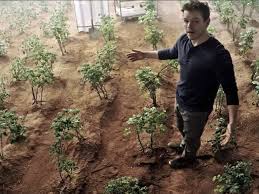
Breaking News
 Who Is ?@NickShirley?? | PBD Podcast | 710
Who Is ?@NickShirley?? | PBD Podcast | 710
 20 Cozy Ways to Celebrate New Year's Eve at Home
20 Cozy Ways to Celebrate New Year's Eve at Home
 The methylation switch: Scientists identify diet that can turn back the cellular clock
The methylation switch: Scientists identify diet that can turn back the cellular clock
 Americans are slaves for the wealthy elite's that write legislation along side corporations...
Americans are slaves for the wealthy elite's that write legislation along side corporations...
Top Tech News
 Laser weapons go mobile on US Army small vehicles
Laser weapons go mobile on US Army small vehicles
 EngineAI T800: Born to Disrupt! #EngineAI #robotics #newtechnology #newproduct
EngineAI T800: Born to Disrupt! #EngineAI #robotics #newtechnology #newproduct
 This Silicon Anode Breakthrough Could Mark A Turning Point For EV Batteries [Update]
This Silicon Anode Breakthrough Could Mark A Turning Point For EV Batteries [Update]
 Travel gadget promises to dry and iron your clothes – totally hands-free
Travel gadget promises to dry and iron your clothes – totally hands-free
 Perfect Aircrete, Kitchen Ingredients.
Perfect Aircrete, Kitchen Ingredients.
 Futuristic pixel-raising display lets you feel what's onscreen
Futuristic pixel-raising display lets you feel what's onscreen
 Cutting-Edge Facility Generates Pure Water and Hydrogen Fuel from Seawater for Mere Pennies
Cutting-Edge Facility Generates Pure Water and Hydrogen Fuel from Seawater for Mere Pennies
 This tiny dev board is packed with features for ambitious makers
This tiny dev board is packed with features for ambitious makers
 Scientists Discover Gel to Regrow Tooth Enamel
Scientists Discover Gel to Regrow Tooth Enamel
 Vitamin C and Dandelion Root Killing Cancer Cells -- as Former CDC Director Calls for COVID-19...
Vitamin C and Dandelion Root Killing Cancer Cells -- as Former CDC Director Calls for COVID-19...
Scientists plan to grow potatoes under Martian conditions

The effort is not only a big step towards the goal of one day constructing a controlled farming dome on Mars, but will also demonstrate the potential of growing potatoes in inhospitable environments back home – something that the researchers hope will help tackle world hunger.
If mankind is ever to establish a colony on Mars, it'll first have to work out how to create a sustainable food source. We've seen proposals in the past that aim to test whether crops will grow on the Red Planet, but a lot more work needs to be done before a viable solution emerges.
To prepare for the inevitably tricky endeavour, Peru-based research and development organization CIP is planning on conducting a dry run back home. The team will use soil from the Pampas de La Joya Desert in Peru, which is almost identical to that found on Mars. The researchers will grow the crop in a laboratory environment that mimics the atmospheric conditions of the Red Planet, where the atmosphere is close to 95 percent carbon dioxide.



